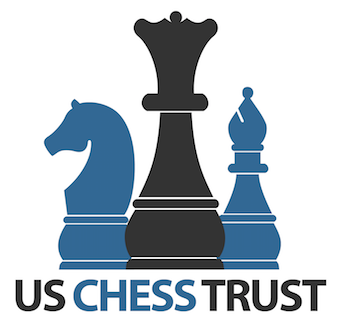Cognitive Development and Chess for Kindergarten and Pre-K Students

By WIM Beatriz Marinello
In the 1970s and 1980s, educators, psycologists and chess aficionados were wondering – At what age can a child be introduced to the game of chess?
This question was especially interesting because of the theories developed by Jean Piaget.
Piaget was a Swiss philosopher, natural scientist and developmental psychologist, well known for his work studying children, his theory of cognitive development and for his epistemological view called “genetic epistemology”.
In 1955, he created the International Centre for Genetic Epistemology in Geneva and directed it until 1980.
Below are more details regarding Jean Piagets “Theory of Cognitive Development”.
The Theory of Cognitive Development
One of the most historically influential theories was developed by Jean Piaget, a Swiss psychologist (1896–1980).
His theory provided many central concepts in the field of developmental psychology and concerned the growth of intelligence, which for Piaget, meant the ability to more accurately represent the world and perform logical operations on representations of concepts grounded in the world.
The theory concerns the emergence and acquisition of schemata—schemes of how one perceives the world—in “developmental stages”, times when children are acquiring new ways of mentally representing information.
The theory is considered “constructivist”, meaning that, unlike nativist theories (which describe cognitive development as the unfolding of innate knowledge and abilities) or empiricist theories (which describe cognitive development as the gradual acquisition of knowledge through experience), it asserts that we construct our cognitive abilities through self-motivated action in the world.
For his development of the theory, Piaget was awarded the Erasmus Prize.
Piaget divided schemes that children use to understand the world through four main periods, roughly correlated with and becoming increasingly sophisticated with age:
- Sensorimotor period (years 0–2)
- Preoperational period (years 2–6)
- Concrete operational period (years 6–12)
- Formal operational period (years 12–adulthood)
How does this theory impact the game of chess?
According to Piaget’ studies, children develop the ability to perform concrete operations between ages 6-12.
Concrete operations’ are characterized as evidence of organized, logical thought. There is the ability to perform multiple classification tasks, order objects in a logical sequence, and comprehend the principle of conservation.
Thinking becomes less transductive and less egocentric. The child is capable of concrete problem-solving.
Therefore, there is no question (according to this theory), that children can learn and develop chess skills and knowledge beginning at age 6.
However, according to Piaget abstract thinking begins later, at age 12.
Therefore, the skill of analyzing chess moves in advance, as well as visualizing the board and the pieces without moving the pieces, is not possible to perform for children ages 6-12.
At this point, we all know, this is NOT the case..
Exposing children to intellectual activities such as learning chess helps develop spatial imagination and abstract thinking.
Another important question is: Can Kindergarten and Pre-K students learn chess?
Here, we are talking about children 4 and 5 years of age, who are beginning their first school year.
In my experience, teaching kinderdarten classes as part of the school curriculum for 14 years, children as young as 4 years old can begin learning the game.
It is true that the process of teaching chess to students this young requires a slower pace, more repetitive patterns and visually appealing pictures, as well as stories that can engage and motivate students to open their imaginations and desire to learn.
There are many children, who’s mental structures are already prepared at this age, to perform concrete and abstract operations. It seems to be a natural talent that is built into their brain at a much earlier stage.
There are no specific studies or research in this area, which I think could help us understand the human brain better, as well as how specific abilities are developed.
But, the answer to the question remains the same. Can children at such an early age learn the game of chess?
The answer is …Yes, children at this age can learn and develop chess skills.
In fact, this is highly recommended, as there is scientific evidence that indicates that at this age, the brain needs to be utilized, presenting a situation where it basically comes down to – using it or losing it.
There is alot more ground to cover regarding chess for Kindergarten & Pre-K students…such as learning tools, hands on activities, chess curriculum etc…we will discuss those in future blogs.
This wraps todays blog up…until next time …
Comments are welcome!

